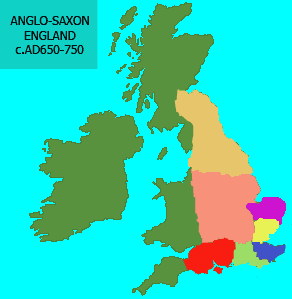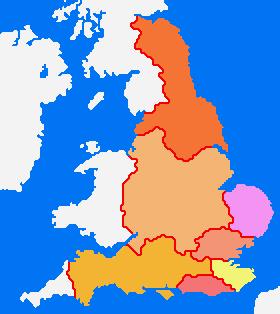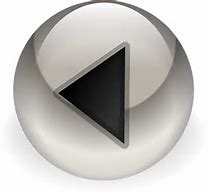









Everything For The Detectorist - Reference & Timelines




Powered By Sispro1

More Indepth notes on Metals
Source: Bibliography
Source: Bibliography

[1-17]
United Kingdom - Anglo-Saxons
The British Library is also a good source to fill in the gaps of history
For an external link click onto the banner below to go to the British Library.
For an external link click onto the banner below to go to the British Library.
Please Note: Research has highlighted conflicting dates or overlapping dates most likely due to joint succession - therefore should be treated as approximations.
Key: D: = Death
Key: D: = Death
| Anglo-Saxons | ||
| Year | King | |
| 425-450 AD | Anglo-Saxon Arrival | |
| 527-587 AD | AEscwine | |
| 587-604 AD | Sledda | |
| 559-560 AD | Glappa | |
| 560-568 AD | Adda (Son of Ida) | |
| 568-572 AD | AEthelric | |
| 572-579 AD | Theodoric (Son of Ida) | |
| 579-585 AD | Frithuwald | |
| 585-592 AD | Hussa | |
| 588-593 AD | AEthelric (AElle) | D:593 |
| 592-616 AD | AEthelfrith | |
| 616-632 AD | Edwin (St.Edwin) | D:632-3 |
| 632-633AD | Eanfrith (Eanfrith) | |
| 633-641 AD | Oswald (St. Oswald) | |
| 641-670 AD | Oswiu | D:651 |
| 644-651 AD | Oswine (St Oswine) K.of Deira | |
| 651-654 AD ? | OEthelwald | |
| 670-685 AD | Ecgfrith | |
| 67?-679 AD | AElfwine | D:679 |
| 685-704 AD | Aldfrith | D:704 |
| 704-705 AD | Eadwulf | |
| 705-716 AD | Osred I | D:716 |
| 716-718 AD | Cenred | |
| 718-729 AD | Osric | D:729 |
| 729-737 AD | Ceolwulf | D:760-4 |
| 757-796 AD | Offa (King of Mercia) | |
| 737-758 AD | Eadberht | D:768 |
| 758-759 AD | Oswulf | D:759 |
| 759-765 AD | AEelwald Moll | |
| 765-774 AD | Alhred | |
| 774--779 AD | AEthelred I | |
| 779-788 AD | AElfwald I | |
| 788-790 AD | Osred II | D:792 |
| * 790-796 AD | AEthelred I | |
| 796-810 AD | Eardwulf | |
| House of Wessex | ||
| 802-839 AD | Egbert (King of Wessex) | |
| 808 AD | AElfwald II | |
| 808-810 AD | Eardwulf | |
| 810-840 AD | Eanred | |
| 839-856 AD | Ethelwulf | |
| 840-844 AD | AEthelred II | |
| 844 AD | Raedwulf | |
| 844-848 AD | AEthelred II | |
| 848-866 AD | Osberht | |
| 854-860's AD | Horik II (Erik Barn) | D:871 |
| 856-860 AD | Ethelbald | D:860 |
| 860-866 AD | Ethelbert | |
| 866-867 AD | Roger of Wendover | |
| Viking Era Overlap | ||
| 867-873 AD | Ecgberht I | |
| 871-899 AD | Alfred 'The Great' | |
| 873-876 AD | Ricsige | D:876 |
| 876 AD | Halfdene - Ecgberht II | |
| 870-871 AD | Bagsecg | D:871 |
| 899-924 AD | Edward 'The Elder' | |
| 924-939 AD | Athelstan | |
| 939-946 AD | Edmund I 'the Magnificent' | |
| 946-955 AD | AEdred | |
| 955-959 AD | AEwig (Edwy) ' All Fair' | |
| 959-975 AD | Edgar 'the Peacable' | |
| 975-978 AD | Edward 'the Martyr' | |
| 978-1016 AD | AEthelred 'the unready' | |
| 1016 AD | Edmund Ironside | |
| 985-1035AD | Cnut the Great | |
| 910-990 AD | Egill Skallagrisson | D: 990 |
| 880-950 AD | Eric the Victorious | D:1014 |
| Godfrid Duke of Frisia | D: 885 | |
| c.820- c.856 AD | Godfrid Haraldsson | D: 886 |
| 871-899 AD | Guthrum | D:980 |
| Halfdan | D:877 | |
| 866-900 AD | Guthred | D:895 |
| 910-940 AD | Harald Bluetooth | D:985-6 |
| 960-1014 AD | Sweyn Forkbeard | D:186-7 |
| 870-930 AD | Harald Fairhair | |
| 1040's-1047 AD | Harald Hardrada | |
| Harald Fairhair | ||
| 826 AD | Harald Klak | |
| Ivor the Boneless | ||
| 955-1000 AD | Olaf Tryggvason | |
| Ragnar Lodbrok | ||
| Rollo of Normandy | ||
| Rorik of Dorestad | ||
| Sweyn Forkbeaqrd | ||
| 878 AD | Ubbe Ragnarsson | |
| 1015-1030 AD | Olav Haraldsson (St Olaf) | |
| 1016 AD | Edmund II 'Ironside' | D:1016 |
| 1042-1066 AD | Edward 'The Confessor' | D:1066 |
| 1066 AD | Harold II Godwinesson | D:1066 |
| 1066 AD | William the Conqueror | |
- Prehistoric Britiain (Species 'Homo' Present in what now
known as Britain (700,000 years ago)
- Palaeolithic (Old Stone Age)
- Lower Palaeolithic (up to 250,000 years ago)
- Middle Paleolithic (180,000 - 40,000 years ago) - (Neanderthal
Man)
- Upper Palaeolithic (40,000 - 10, 000 Years ago)
- Mesolithic (10,000 - 5,500 years ago)
- Mesolithic-Neolithic transition (c. 4500 BC)
- Neolithic (4000-2000 BC) (Domestication of plants and
animals)
- Middle Neolithic (c.3300 -c. 2900 BC) (Chamber tombs Stone
Circles, Barrows
- Bronze Age (2200 - 750 BC)
- Iron Age (750 BC - 43 AD)
known as Britain (700,000 years ago)
- Palaeolithic (Old Stone Age)
- Lower Palaeolithic (up to 250,000 years ago)
- Middle Paleolithic (180,000 - 40,000 years ago) - (Neanderthal
Man)
- Upper Palaeolithic (40,000 - 10, 000 Years ago)
- Mesolithic (10,000 - 5,500 years ago)
- Mesolithic-Neolithic transition (c. 4500 BC)
- Neolithic (4000-2000 BC) (Domestication of plants and
animals)
- Middle Neolithic (c.3300 -c. 2900 BC) (Chamber tombs Stone
Circles, Barrows
- Bronze Age (2200 - 750 BC)
- Iron Age (750 BC - 43 AD)
Prehistoric Britain is that period of time between the first arrival of humans on the extra-continental land mass now known as Great Britain and the start of recorded British history . The "recorded history" of Britain is conventionally reckoned to begin in AD 43 with the Roman invasion of Britain , though some historical information is available from before that time.
It should be noted that archeological prehistory, comprises into distinct periods, based on the development of tools from stone to bronze and iron, as well as changes in culture and climate that can be determined from the archeological record; but the boundaries of these periods are uncertain, and the changes between them gradual. In addition, the dates of the changes demonstrated in Britain are generally different from those of Continental Europe.
Anglo-Saxon is a term used by historians to designate the invading Germanic tribes in the south and east of Great Britain , from the early 5th century AD, and their creation of the English nation, to the Norman conquest of 1066. The Anglo-Saxon Era denotes the period of English history between about 550 AD and the Norman conquest. The term is also used for the language now called Old English, spoken and written by the Anglo-Saxons and their descendants in much of what is now England and some of southeastern Scotland between at least the mid-5th century and the mid-12th century.
The Benedictine monk, Bede, writing in the early 8th century, identified the English as the descendants of three Germanic tribes:
The Angles , who may have come from Angeln (in modern Germany ); Bede wrote that their whole nation came to Britain, leaving their former land empty. The name England (Old English : Engla land or ngla land) originates from this tribe.
The Saxons , from Lower Saxony (in modern Germany; German : Niedersachsen) and the Low Countries .
The Jutes, possibly from the Jutland peninsula (in modern Denmark ; Danish : Jylland).
Their language, Old English, derived from "Ingvaeonic " West Germanic dialects and transformed into Middle English from the 11th century. Old English was divided into four main dialects: West Saxon , Mercian , Northumbrian(Old English) and Kentish
It should be noted that archeological prehistory, comprises into distinct periods, based on the development of tools from stone to bronze and iron, as well as changes in culture and climate that can be determined from the archeological record; but the boundaries of these periods are uncertain, and the changes between them gradual. In addition, the dates of the changes demonstrated in Britain are generally different from those of Continental Europe.
Anglo-Saxon is a term used by historians to designate the invading Germanic tribes in the south and east of Great Britain , from the early 5th century AD, and their creation of the English nation, to the Norman conquest of 1066. The Anglo-Saxon Era denotes the period of English history between about 550 AD and the Norman conquest. The term is also used for the language now called Old English, spoken and written by the Anglo-Saxons and their descendants in much of what is now England and some of southeastern Scotland between at least the mid-5th century and the mid-12th century.
The Benedictine monk, Bede, writing in the early 8th century, identified the English as the descendants of three Germanic tribes:
The Angles , who may have come from Angeln (in modern Germany ); Bede wrote that their whole nation came to Britain, leaving their former land empty. The name England (Old English : Engla land or ngla land) originates from this tribe.
The Saxons , from Lower Saxony (in modern Germany; German : Niedersachsen) and the Low Countries .
The Jutes, possibly from the Jutland peninsula (in modern Denmark ; Danish : Jylland).
Their language, Old English, derived from "Ingvaeonic " West Germanic dialects and transformed into Middle English from the 11th century. Old English was divided into four main dialects: West Saxon , Mercian , Northumbrian(Old English) and Kentish


Click
Anglo-Saxon Menu Index
Designed by Nigel G Wilcox
Copyright All Rights Reserved by Nigel G Wilcox E-Mail: ngwilcox100@gmail.com

Anglo-Saxon Kings
By Regions
By Regions







'Click' on County for more
detailed breakdown
detailed breakdown
EA
W
M
N
S
K
E
Just Added
The Paragon Of Metal Detecting
& Archaeology
& Archaeology
5. Menu
Pages
Member NCMD

























